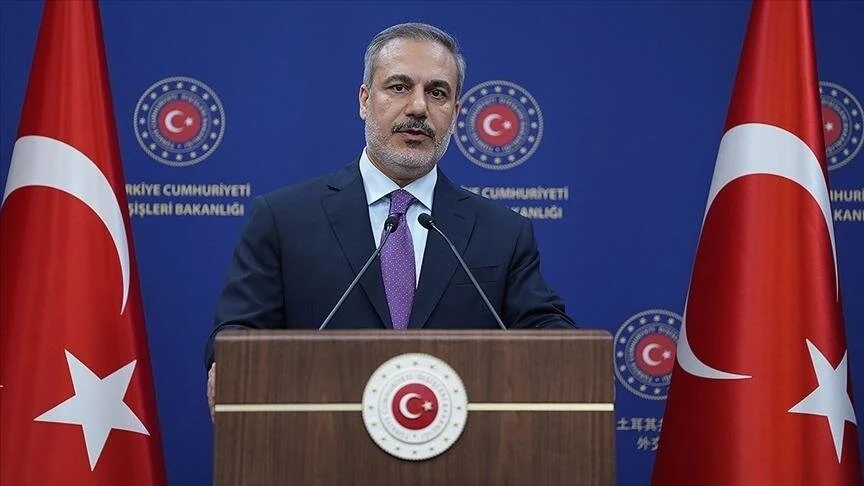ISTANBUL
The Turkish foreign minister announced on Monday that the country has decided to take “a string of measures” against Israel until a cease-fire is reached.
“Türkiye has decided to take a string of measures against Israel until a cease-fire is achieved and Israel allows uninterrupted aid into Gaza,” Hakan Fidan told a press conference at the Ministry of Foreign Affairs in the capital Ankara.
“These measures, approved by our president, will be implemented step by step, and without delay. These measures will be shared with the public by our relevant institutions,” he said.
The foreign minister said Türkiye “requested to be involved in humanitarian airdrops to Gaza, but Israel rejected it even though Jordan approved it.”
“There is no excuse for Israel to block our attempt to airlift aid to starving Gazans.”
“For the first time ever, the entire global community is condemning Israel,” Fidan said, noting Türkiye’s efforts to assist the war-torn Gazans.
“Türkiye is one of the two countries that send the most aid to Gaza, our ninth ship has sailed now,” he said.
The aid Ankara sent to Egypt to be delivered to Gaza by sea and air exceeded 42,000 tons., Fidan added.
The Turkish foreign minister also commented on South Africa’s genocide accusation against Israel at the International Court of Justice (ICJ), saying that “even the UN Security Council, which has remained silent until now, has said that Israel has to declare cease-fire.”
ICJ, in an interim ruling in January, ordered Tel Aviv to stop genocidal acts and take measures to guarantee that humanitarian assistance is provided to civilians in Gaza.
At least 32 Palestinians were killed in Israeli attacks in the Gaza Strip, pushing up the death toll since last October to 33,207, the Health Ministry in the besieged enclave has said.
Israel has pounded the Gaza Strip since Oct. 7, 2023, cross-border attack by the Palestinian group Hamas, which killed nearly 1,200 people.
The Israeli war on Gaza has pushed 85% of the territory’s population into internal displacement amid acute shortages of food, clean water and medicine, while 60% of the enclave’s infrastructure has been damaged or destroyed, according to the UN.

